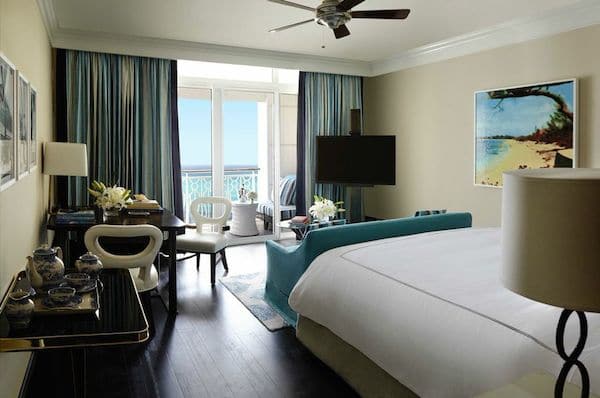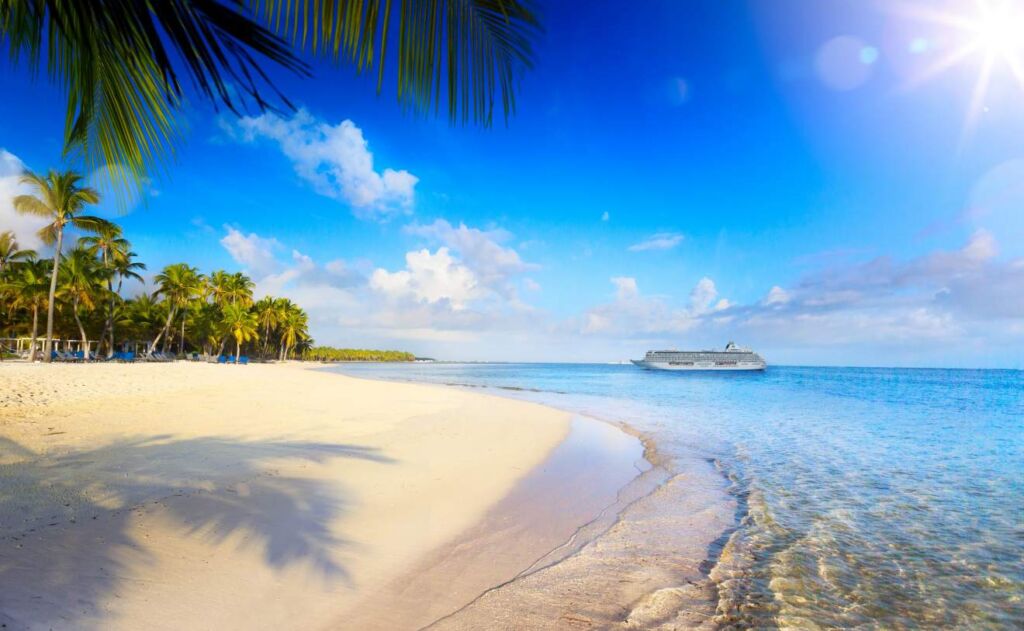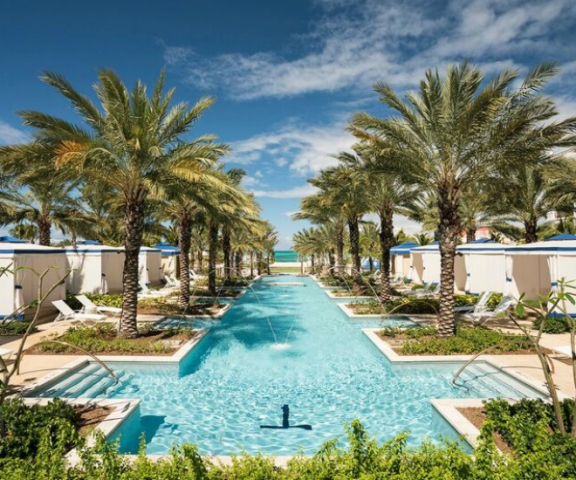After over 10 years of delays, controversies, and shifting ownership, the sprawling Baha Mar resort is finally opening its doors — at least partially — this Friday, marking a monumental moment in Bahamian tourism development.
Located on 1,000 acres along a pristine half-mile stretch of white sand beachfront in Nassau, the $4.2 billion Baha Mar development brings an ambitious blend of luxury, entertainment, and scale never before seen in the Caribbean. With three branded hotels, a massive oceanfront casino, and dozens of amenities, Baha Mar aims to establish itself as a premier destination for travelers from around the globe.
The centerpiece of the opening is the Grand Hyatt Baha Mar, the largest of the three hotels with 1,800 rooms. The property will welcome invited guests first and open to paid reservations starting in late May, with nightly rates beginning in the mid-$300 range. The 300-room SLS Baha Mar, targeting a more style-focused clientele with rates from $500 per night, is expected to launch later this year. Meanwhile, the ultra-luxurious 200-room Rosewood Baha Mar — where rooms start at $700 — is slated for a spring 2026 opening.
But Baha Mar is far more than just a collection of hotels. The complex includes the Caribbean’s largest casino at 100,000 square feet, overlooking the turquoise waters of Cable Beach. The project also boasts 42 restaurants and lounges, 30 high-end retailers — including luxury names like Rolex and Bulgari — an 18-hole Jack Nicklaus Signature Golf Course, 11 pools surrounded by over 250 palm trees, and a freestanding ESPA spa with 24 white-marble-clad treatment rooms.
Guests arriving on opening day will find the casino, golf course, seven pools, parts of the spa, and a selection of retailers and restaurants open for business. The remaining amenities will be rolled out gradually over the coming year.
The journey to this moment has been anything but smooth. Initially announced in 2005 as a $1.6 billion project by local development group BMD Holdings Ltd., led by businessman Sarkis Izmirlian, Baha Mar faced years of construction delays, financing struggles, legal battles, and political tension. A revolving door of investors followed, including heavy involvement from Chinese state-owned enterprises and multiple government interventions.






